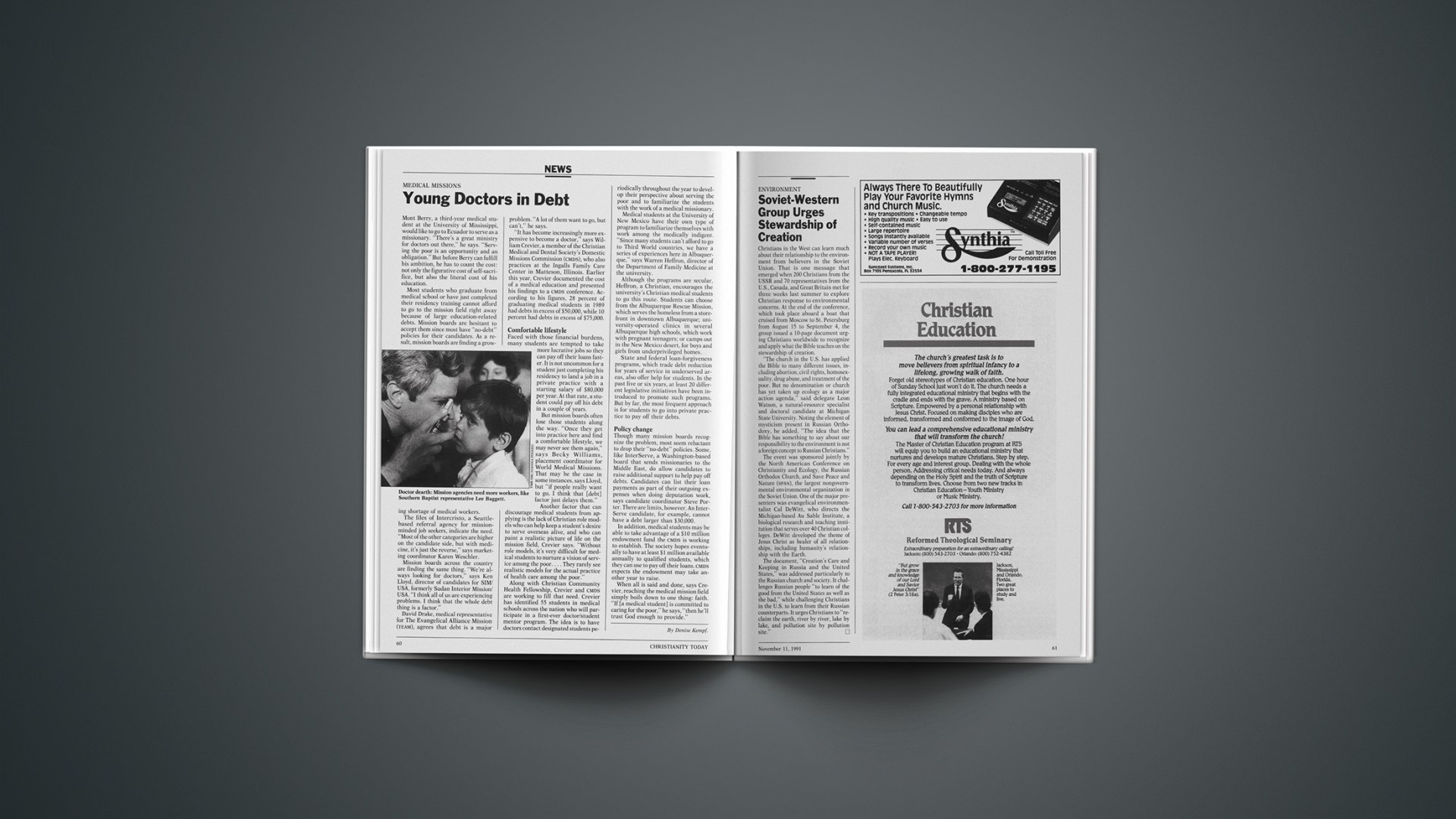Christians in the West can learn much about their relationship to the environment from believers in the Soviet Union. That is one message that emerged when 200 Christians from the USSR and 70 representatives from the U.S., Canada, and Great Britain met for three weeks last summer to explore Christian response to environmental concerns. At the end of the conference, which took place aboard a boat that cruised from Moscow to St. Petersburg from August 15 to September 4, the group issued a 10-page document urging Christians worldwide to recognize and apply what the Bible teaches on the stewardship of creation.
“The church in the U.S. has applied the Bible to many different issues, including abortion, civil rights, homosexuality, drug abuse, and treatment of the poor. But no denomination or church has yet taken up ecology as a major action agenda,” said delegate Leon Watson, a natural-resource specialist and doctoral candidate at Michigan State University. Noting the element of mysticism present in Russian Orthodoxy, he added, “The idea that the Bible has something to say about our responsibility to the environment is not a foreign concept to Russian Christians.”
The event was sponsored jointly by the North American Conference on Christianity and Ecology, the Russian Orthodox Church, and Save Peace and Nature (SPAN), the largest nongovernmental environmental organization in the Soviet Union. One of the major presenters was evangelical environmentalist Cal DeWitt, who directs the Michigan-based Au Sable Institute, a biological research and teaching institution that serves over 40 Christian colleges. DeWitt developed the theme of Jesus Christ as healer of all relationships, including humanity’s relationship with the Earth.
The document, “Creation’s Care and Keeping in Russia and the United States,” was addressed particularly to the Russian church and society. It challenges Russian people “to learn of the good from the United States as well as the bad,” while challenging Christians in the U.S. to learn from their Russian counterparts. It urges Christians to “reclaim the earth, river by river, lake by lake, and pollution site by pollution site.”










